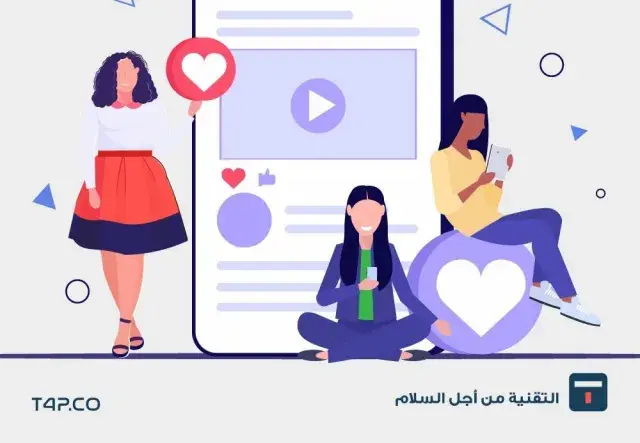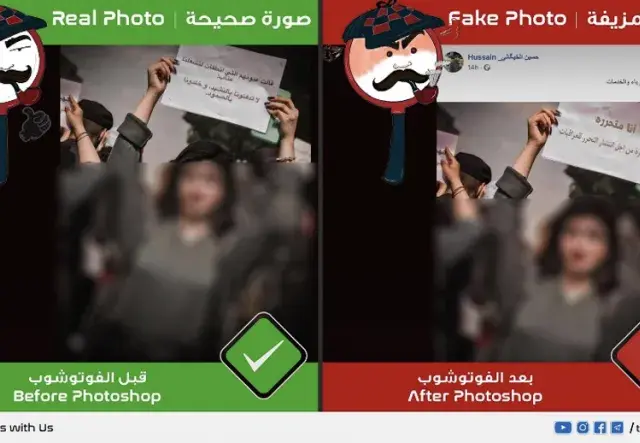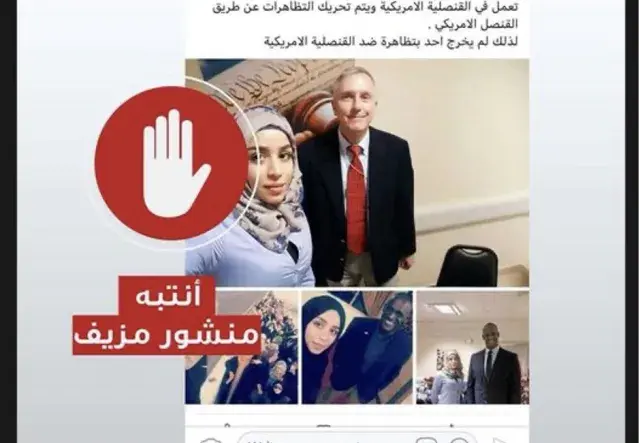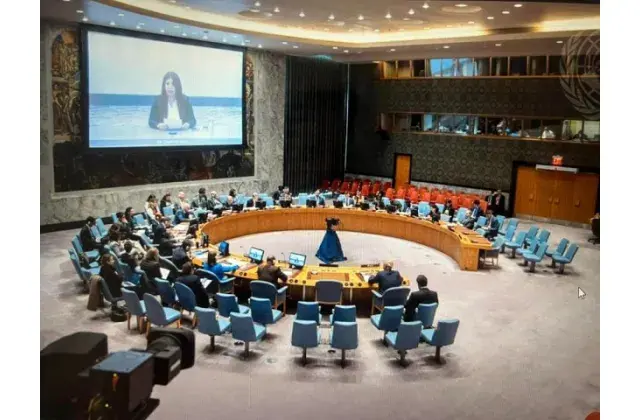Example of a woman protester with a photoshopped sign saying, “I have broken free, and now I protest to help other Iraqi women break free”. This is to imply that protesters in Iraq are going against community values.
From Invisibility To Visibility... Women's Digital Rights In Iraq

In recent years, online platforms have allowed women in Iraq to express their opinions and participate in political discourse. At the same time, however, their digital rights have been violated and curtailed in dangerous ways. Digital rights are crucial for individuals in Iraq and around the world as technology and the internet play an increasingly important role in our daily lives. However, there is a gender gap in who is afforded these rights. In Iraq gender discrimination means that women have fewer rights than men and digital rights are no exception.
Digital rights as defined by the Association for Progressive Communications is the right to access information, the right to freedom of expression, the right to privacy, and the right to participate in the digital economy, among others. However, access to technology and digital literacy are prerequisites for the full exercise of digital rights. Unfortunately, globally, women have less access to the internet and fewer digital skills than men, as internet access disparity affects 52% of women globally, compared to 42% of men. Furthermore, women are at a higher risk of encountering gender-based violence online in the form of hate speech or disinformation. As many as 58% of women in 31 different countries were harassed online, according to a report by Global Citizen.
In Iraq, access to the Internet is still limited in certain locations, especially in rural areas, and the high cost of the internet makes it less accessible to those with lower incomes. According to the World Bank, 96 out of 100 Iraqi women are digitally illiterate, where they lack the basic skills to use computers or IT equipment that is arguably needed in some daily tasks. However, among students, graduates, and employees, women are not behind on basic ICT skills compared to men.
The absence of laws and policies aimed at protecting women, combined with prevalent oppressive cultural norms, has had a detrimental impact on women. This has led to a rise in domestic violence cases, including the recent murder of a woman by her family, in part due to her social media posts which she had to remove to fulfil her family’s wishes.

The country is also lacking laws and regulations regarding cybercrimes and freedom of expression, and some of its laws, such as the penal code, are discriminatory against women and do not provide adequate protection for them. For instance, persons convicted of “honour killings” against women might receive a reduced sentence under Article 409 of the country's Penal Code. Thereby perpetuating a culture that fails to hold perpetrators accountable for their actions.
Despite these challenges, some women in Iraq have used their digital skills to participate in political discourse in order to get informed, have discussions or actively get involved in the political process. However, this has come at a cost as Tech4Peace have recorded that women who have expressed their opinions online have faced a high amount of hate speech and disinformation. And those instances ranged from misogynistic comments on their social media profiles to hacking and stalking and in some cases have even led to death. Women were targeted from all over Iraq and from various social classes and professions. Some women were forced to suspend or even stop their social media presence completely.

The harassment of women online was evident during the October 2019 protests, where women played a significant role both offline and online. This was evident as more and more women participated in the protests and they became known as the "October Ladies." However, this also led to a lot of disinformation and hate speech against female protesters, most of those were gender-based and targeted specifically at the fact they were women. For example, when women’s pictures were circulated online on social media, many of them were attacked in the comments and they were called sexually explicit names or even Baathists and foreign agents. For example when social media pages implied that women are spending the night at Tahrir Square by posting photoshopped images. This forced many women to stop going to protests and participating in such activities.
The death of Reham Yacoub, a doctor and activist, is a prime example of the dangers women face when participating in online activism. She was killed in 2020 after facing a lot of disinformation and hate speech. Such disinformation meant that Reham stopped being active on social media politically and was no longer engaged in the protest movements. However, disinformation, including about her supposed links to foreign American agents, continued which led to her assassination. Reham’s deathinspired other female activists to bring attention to the dangers women face and the causes for which they fight. For example, the hashtag (#Reham_Yacoub #ريهام_يعقوب) was trending on social media and the case caught global attention.

Fabricated post claiming that Reham Yaacoub was working with the US consulate in Basra to mobilise protests
The political elite in Iraq and religious figures played a role in this as some tried to limit women’s rights in general in addition to their rights online in particular. Some released official statements trying to mobilise their followers against women’s participation in protest squares or even decision making processes. However, women’s rights advocates and activists protested this and continued to fight against discrimination online and offline.
Additionally, it is not just activists that are being targeted online. In recent years, there have also been numerous instances of hate speech and fake news about women electoral candidates and politicians, which have damaged their reputations and demotivated voters. The misinformation/ disinformation spread about them was gender-specific and played into patriarchal norms around shame and honour, and women’s place as being in the home.
Some of these problems can be solved by revising the outdated Iraqi Penal Code by removing articles related to honour killings for example. It is important that experts and civil society be involved in crafting new legislation to ensure that it is designed correctly before it is enacted. This is especially true for laws dealing with domestic abuse, cybersecurity, and freedom of expression. Furthermore, the international community should keep pressuring the government to legislate such laws and raise awareness on the need of doing so.
This article highlights the necessity for all Iraqis to have access to digital rights to actively participate in their community as citizens. It is crucial to acknowledge that digital rights should not be denied based on gender, as women are disproportionately affected by the lack of these rights. Despite the ways in which technology and the internet have allowed women to express their views and engage in political discussions, they also face numerous challenges and dangers, such as hate speech, misinformation, and gender-based violence. This highlights the need for legislative action and increased awareness about the importance of digital rights in Iraq, particularly for women.
Link: https://t4p.co/blog/2023-03-06-from-invisibility-to-visibility-women-s-digital-rights-in-iraq
This article was written by Tech4Peace Organisation and is licensed under CC BY-NC 4.0.




